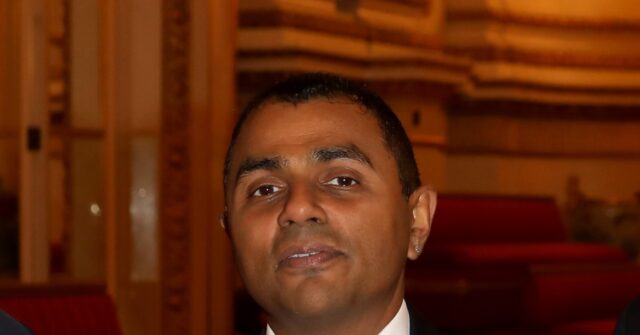Lord Waheed Alli, a prominent Labour Party donor, has been embroiled in a scandal regarding breaches of the House of Lords’ code of conduct. As a legislator elevated to peerage by former Prime Minister Tony Blair, Alli was found to have committed four minor breaches of the House’s regulations concerning the declaration of interests. An investigation led by the House of Lords commissioner for standards uncovered these violations, highlighting potential conflicts of interest that may influence parliamentary actions. The report outlined the infractions and recommended that Lord Alli convey an apology in a letter to Baroness Manningham-Buller, the Chair of the Conduct Committee.
The specific breaches identified in the report included Alli’s failure to disclose his significant control over Silvergate BP Bidco Limited, along with his unremunerated role as a director at The Charlie Parsons Foundation. Furthermore, he was criticized for not registering his interest in MAC (BVI) Limited in a timely manner. Recognizing his missteps, Lord Alli submitted an apology acknowledging his failure to properly register interests, committing to adhere to the code of conduct moving forward. He expressed his intent to rectify such oversights in the future, indicating that he appreciates the necessity of transparency within parliamentary settings.
This situation involving Lord Alli stands apart from another ongoing scandal related to the gifting of luxurious items to Prime Minister Sir Keir Starmer and high-ranking officials within his cabinet. The term “freebies” has emerged to describe these extravagant gifts, which have raised ethical concerns amid the nation’s economic struggles. The intersection of political finances and lavish hospitality has come under scrutiny, particularly given that many citizens are grappling with financial hardships. The valuable gifts, including hospitality valued at over £134,000 since 2019, have sparked discussions about the appropriateness of such contributions from a significant private donor.
Lord Alli has reportedly provided Prime Minister Starmer with substantial gifts, including approximately £19,000 for work attire and designer eyewear this year alone. Additionally, invitations for the use of his lavish Central London penthouse valued at £18 million and a £4 million Soho townhouse were extended to the Labour leader, further blurring the lines between personal generosity and potential political favoritism. The portrayal of these interactions raises critical questions regarding accountability and the ethical boundaries within political financial support.
Despite the surrounding controversy, both Lord Alli and Prime Minister Starmer, along with his cabinet members, have firmly denied any allegations of wrongdoing related to these gifts. They maintain that the financial contributions and hospitality extended are consistent with norms without implying influence over political decisions or actions. Nonetheless, public opinion is increasingly wary of financial ties between political figures and major benefactors, particularly amidst a backdrop of economic difficulties faced by the general populace.
As discussions regarding ethical governance evolve, the case of Lord Waheed Alli exemplifies a significant challenge in balancing political donations with the integrity of public office. The need for clear declarations of interests is paramount in preserving trust between political leaders and the constituents they serve. As the scrutiny around financial contributions continues, the Labour Party, alongside peer members, may need to reassess their approaches and policies related to donations, ensuring compliance with established codes of conduct to prevent future scandals and maintain public confidence.

